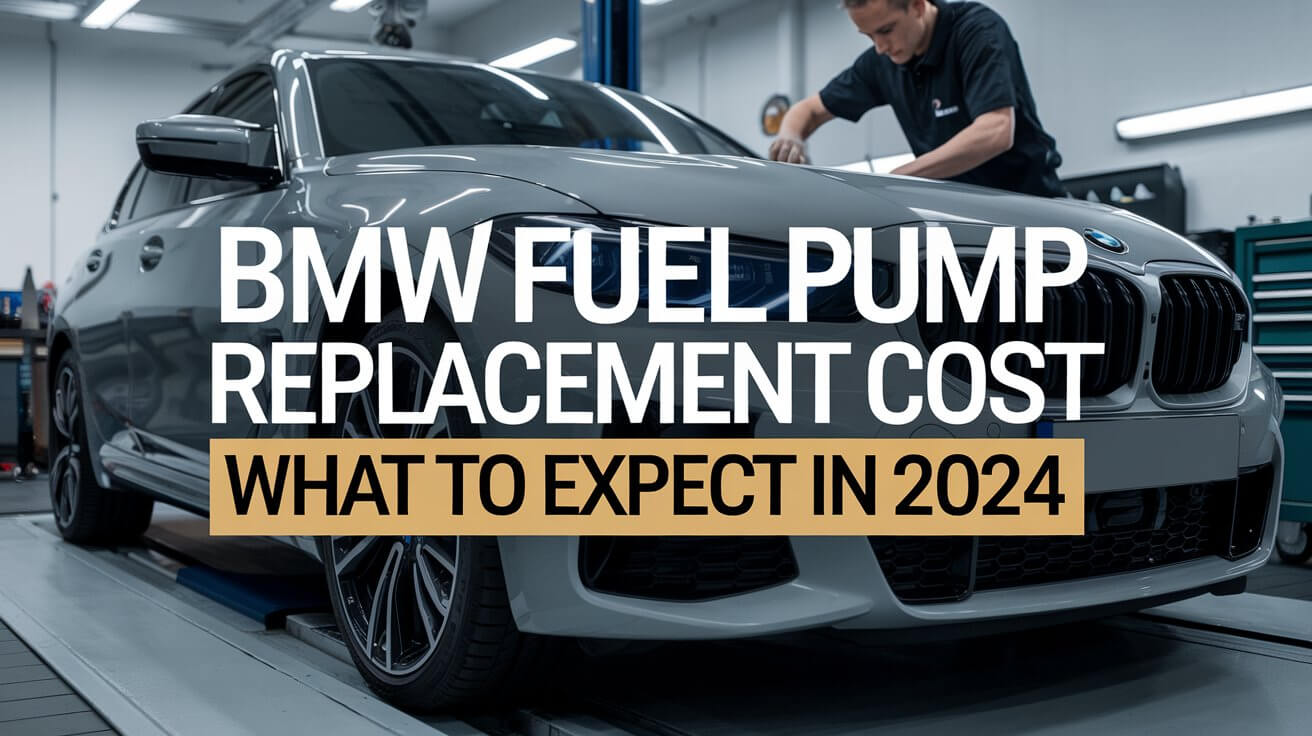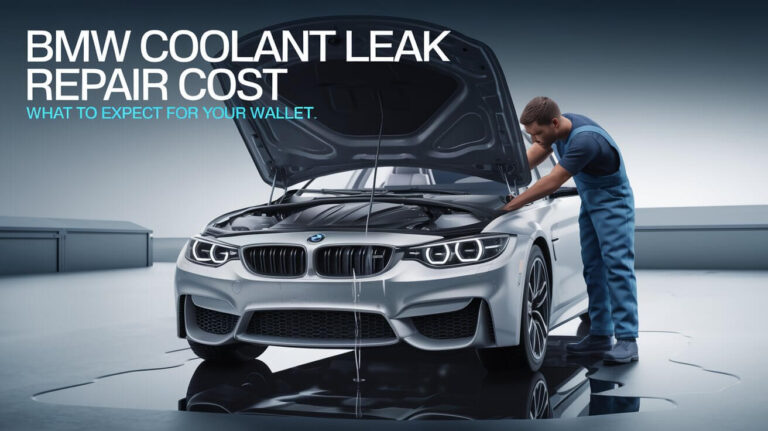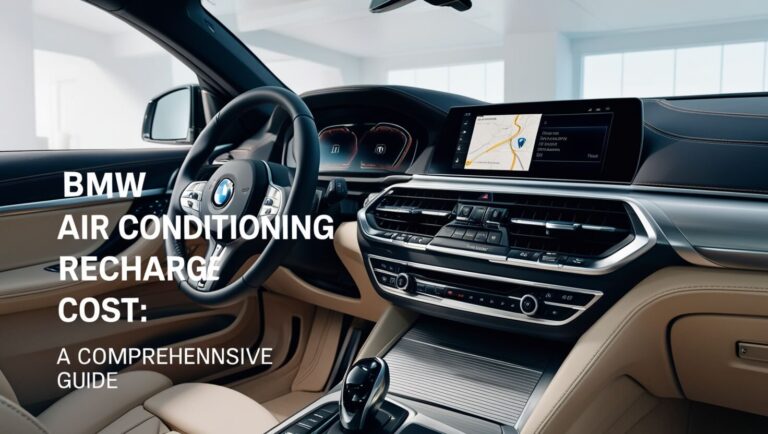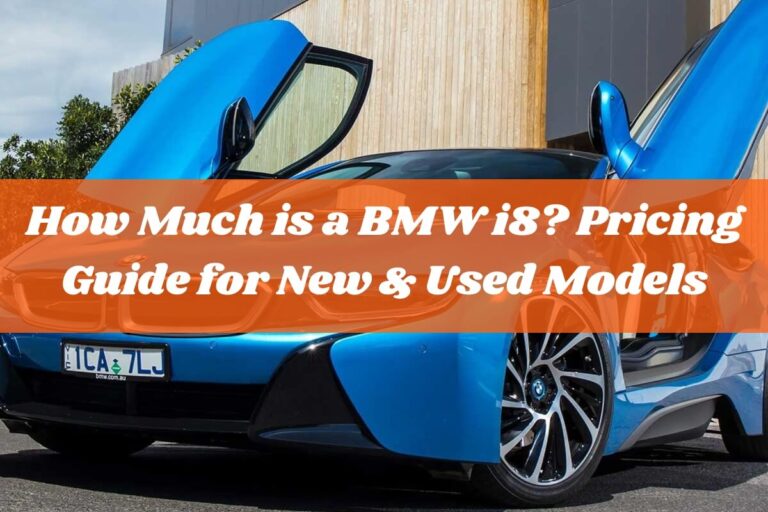
BMW fuel pumps can be pricey to replace, typically costing $800 to $1,300 for parts and labor. This post breaks down the costs, warning signs, and ways to save money on BMW fuel pump repairs. While BMWs offer great performance, fixing them can be expensive. A broken fuel pump might leave you stuck and facing a big bill. But don’t stress – we’ll explain everything about BMW fuel pump replacements.
Common Signs of a Failing BMW Fuel Pump
Catching fuel pump issues early can save you from costly breakdowns. Here are the telltale signs to watch for:
Engine Performance Issues
Your BMW’s engine might act up when the fuel pump starts to fail:
- Sputtering or misfiring, especially at high speeds
- Sudden loss of power when accelerating
- Decreased fuel efficiency
If your smooth-running Beemer starts to feel more like a jalopy, it’s time to check the fuel pump.
Strange Noises from the Fuel Tank
Listen up! A healthy fuel pump should be nearly silent. If you hear these sounds, your pump might be on its last legs:
- Whining or buzzing from the rear of the car
- Loud humming that gets louder as you accelerate
These noises often mean the pump’s motor is struggling to push fuel through the system.
Difficulty Starting the Vehicle
A failing fuel pump can make your BMW hard to start or prevent it from starting altogether. You might notice:
- The engine cranks but won’t turn over
- It takes several attempts to get the engine running
- The car starts fine in the morning but struggles after driving
Don’t ignore these warning signs – they could leave you stranded if not addressed promptly.
Factors Affecting BMW Fuel Pump Replacement Costs
Several factors influence how much you’ll shell out for a new fuel pump:
BMW Model and Year
Newer, more complex BMW models often have pricier fuel pumps. For example:
- 3 Series models typically cost less to repair than 7 Series
- Older models might have simpler, less expensive pumps
- High-performance M models usually come with higher repair costs
Always check your specific model when budgeting for repairs.
Parts Quality and Brand
You’ve got options when it comes to replacement parts:
- OEM (Original Equipment Manufacturer) parts: Most expensive but guaranteed to fit
- Aftermarket parts: Often cheaper but quality can vary
- Remanufactured parts: A middle-ground option in terms of cost and reliability
Your choice affects both the initial cost and long-term reliability.
Labor Rates and Location
Where you live and where you take your BMW can significantly impact labor costs:
- Dealerships often charge the highest rates
- Independent BMW specialists might offer more competitive pricing
- Urban areas typically have higher labor costs than rural regions
Shop around to find the best balance of expertise and affordability.
Average BMW Fuel Pump Replacement Cost Breakdown
Let’s break down where your money goes when replacing a fuel pump:
Parts Costs
The fuel pump itself is a significant portion of the total cost:
- OEM BMW fuel pumps: $400 – $800
- Aftermarket options: $200 – $500
- High-performance or rare model pumps: Can exceed $1,000
Quality matters, so don’t automatically go for the cheapest option.
Labor Costs
Replacing a fuel pump is no quick job. Labor typically runs:
- 2-4 hours of work at $100 – $150 per hour
- Total labor costs: $200 – $600
Some models require dropping the fuel tank, which increases labor time and cost.
Diagnostic Fees
Don’t forget about diagnostic charges:
- Initial diagnostic fee: $50 – $150
- This fee is sometimes waived if you proceed with repairs at the same shop
Always ask if diagnostic fees will be applied to the total repair cost.
DIY vs Professional BMW Fuel Pump Replacement
Thinking about tackling the job yourself? Consider these pros and cons:
Pros and Cons of DIY Replacement
Pros:
- Significant cost savings on labor
- Satisfaction of doing it yourself
- Learning experience
Cons:
- Risk of mistakes or incomplete repair
- Lack of warranty on work
- Potential for injury or fuel system damage
DIY fuel pump replacement isn’t for everyone. Be honest about your skills and tools before attempting.
When to Choose Professional Service
Opt for a pro when:
- You’re not comfortable working with fuel systems
- Your BMW is still under warranty
- You lack the necessary tools or workspace
- Time is a factor – pros can often complete the job faster
Professional service provides peace of mind and often comes with a repair warranty.
Ways to Save on BMW Fuel Pump Replacement
Don’t let fuel pump replacement drain your wallet dry. Try these money-saving strategies:
Comparing Quotes from Different Shops
- Get at least three quotes from reputable shops
- Ask about parts options and warranties
- Check online reviews and ask for recommendations from other BMW owners
A little research can save you hundreds on repairs.
Considering Aftermarket Parts
Aftermarket parts can slash your costs:
- Often 20-50% cheaper than OEM parts
- Look for well-reviewed brands with good warranties
- Ask your mechanic about reliable aftermarket options
Just be sure to weigh potential long-term costs against upfront savings.
Preventative Maintenance Tips
Keep your fuel pump healthy to avoid premature replacement:
- Don’t run your tank too low on fuel
- Use quality gasoline from reputable stations
- Replace your fuel filter according to BMW’s recommendations
An ounce of prevention is worth a pound of cure – especially with BMWs.
BMW Fuel Pump Warranty Coverage
Before you pay out of pocket, check your warranty status:
Standard Warranty Terms
New BMWs typically include:
- 4-year/50,000-mile bumper-to-bumper warranty
- This usually covers fuel pump failures
Certified Pre-Owned (CPO) BMWs may have remaining warranty coverage.
Extended Warranty Options
Consider an extended warranty for older BMWs:
- Can cover fuel pump replacements after the factory warranty expires
- Offered by BMW and third-party providers
- Weigh the cost against potential repair savings
Read the fine print to understand what’s covered and any deductibles.
Step-by-Step BMW Fuel Pump Replacement Process
For the curious or DIY-inclined, here’s an overview of the replacement process:
Preparation and Safety Precautions
Safety first:
- Work in a well-ventilated area
- Disconnect the battery
- Relieve fuel system pressure
- Have a fire extinguisher handy
Fuel is flammable – take every precaution seriously.
Removal of Old Fuel Pump
The basic steps include:
- Locating the fuel pump (often under rear seats or in the trunk)
- Removing the access panel
- Disconnecting electrical connections and fuel lines
- Removing the pump assembly from the tank
Some models require lowering or removing the fuel tank – a complex and potentially dangerous task.
Installation of New Fuel Pump
Installation is generally the reverse of removal:
- Placing the new pump in the tank
- Reconnecting fuel lines and electrical connections
- Securing the access panel
- Priming the fuel system before starting the engine
Always follow model-specific instructions and torque specifications.
Frequently Asked Questions About BMW Fuel Pump Replacement
How long does a BMW fuel pump typically last?
Most BMW fuel pumps last 100,000 to 150,000 miles, but this varies based on driving habits and maintenance.
Can I drive with a failing fuel pump?
It’s not recommended. A failing pump can leave you stranded and potentially damage other fuel system components.
Will a bad fuel pump trigger a check engine light?
Often, yes. However, not all fuel pump issues trigger warning lights, so pay attention to other symptoms.
Is it worth replacing the fuel pump on an older BMW?
It depends on the overall condition of the car. If the rest of the vehicle is in good shape, a new fuel pump can extend its life significantly.
Can using low-quality fuel damage my BMW’s fuel pump?
While occasional use of lower-grade fuel won’t immediately damage the pump, consistently using poor-quality gas can lead to premature wear.
final thoughts
Replacing a BMW fuel pump isn’t cheap, but it’s crucial for keeping your ultimate driving machine on the road. By recognizing early warning signs, understanding cost factors, and exploring your repair options, you can make informed decisions that balance cost and quality.
Remember, while saving money is important, cutting corners on fuel system repairs can lead to bigger, more expensive problems down the road. Whether you choose DIY or professional service, prioritize quality parts and proper installation.
With the knowledge from this guide, you’re well-equipped to handle fuel pump issues with confidence. Keep your BMW running smoothly, and enjoy the performance and luxury that made you choose the brand in the first place.






